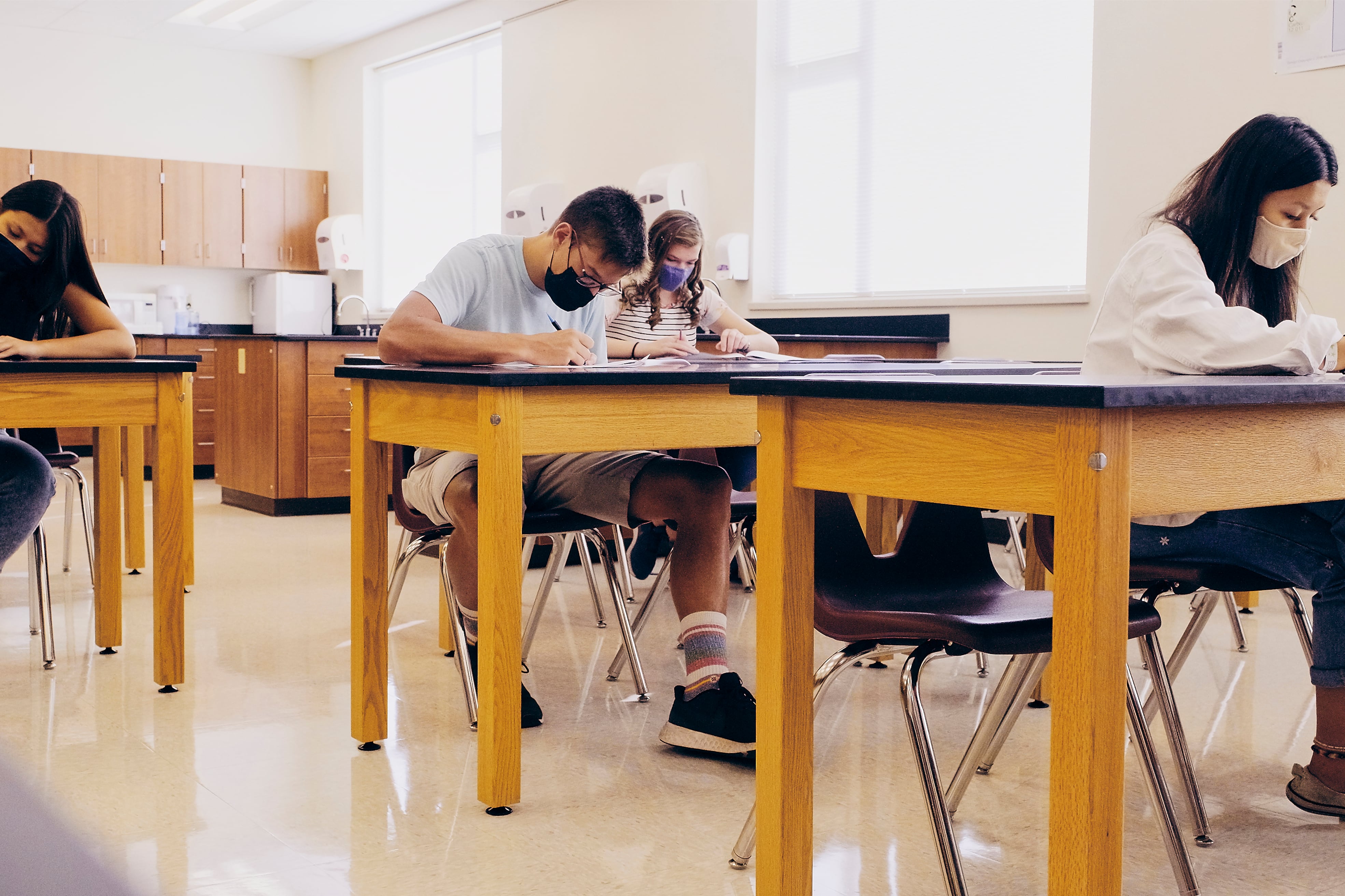Sign up for Chalkbeat New York’s free daily newsletter to keep up with NYC’s public schools.
Just weeks into the new academic year, a middle school in a Brooklyn charter network has reinstated a mask mandate amid a sudden surge in COVID cases, Chalkbeat has learned.
The move follows warnings from some health experts and weeks of steadily climbing case numbers in New York City — signs COVID will once again remain a factor in the nation’s largest school system.
The Brooklyn Prospect Charter School network last week notified families at its Windsor Terrace Middle School, located in Downtown Brooklyn, that a spike of cases among sixth graders prompted the temporary mask mandate. The requirement would last until each grade went five days without any new cases, according to an email sent to families.
Those precautionary measures continued into this week.
Tuesday, another email to families noted the school had seen “a severe spike of new cases across the building,” with “many students and staff being out sick.” That email said a mandate would remain in effect until further notice, requiring all staff members to wear masks, with students “strongly advised” to do the same.
“Throughout the pandemic, in accordance with public health guidance, we have done everything we can to ensure that our school communities are safe spaces of learning,” a spokesperson for the network said in a statement. “No one wants to return to a world where all students are required to wear masks to attend school and so we are following state health guidelines by encouraging students to wear masks while leaving the ultimate decision of whether to do so up to our students and their families.”
Network officials declined to say how many students or staff had tested positive, but said that Brooklyn Prospect has continually tracked COVID cases in its schools.
The impact of COVID on public schools citywide can be difficult to follow. This month, Education Department officials scrapped a map reporting daily case counts among students and staff in the city’s schools. They said schools no longer needed to report cases this year, though the city’s Health Department would continue to monitor cases among school-aged children. (Some individual schools might continue to track cases among their communities, but they no longer need to send the data to the Education Department.)
The Education Department maintains COVID guidance on its website, but little information has been distributed to families this year about protocols in schools. Charters, such as those run by the Brooklyn Prospect network, can create their own protocols.
Overall daily case numbers across the five boroughs have steadily risen in recent months, according to the city’s health department. The average number of new cases jumped from around 250 in June to roughly 1,300 as of September. Hospitalizations as a result of the virus have also spiked upwards, though both metrics remain well below their peaks earlier in the pandemic.
Still, even a modest resurgence in COVID cases could signal an additional challenge for schools, potentially worsening absenteeism rates that have surged in NYC since the pandemic began. Roughly 53% of public school students were fully vaccinated as of November 2022, according to the most recently available public data.
Julian Shen-Berro is a reporter covering New York City. Contact him at jshen-berro@chalkbeat.org






